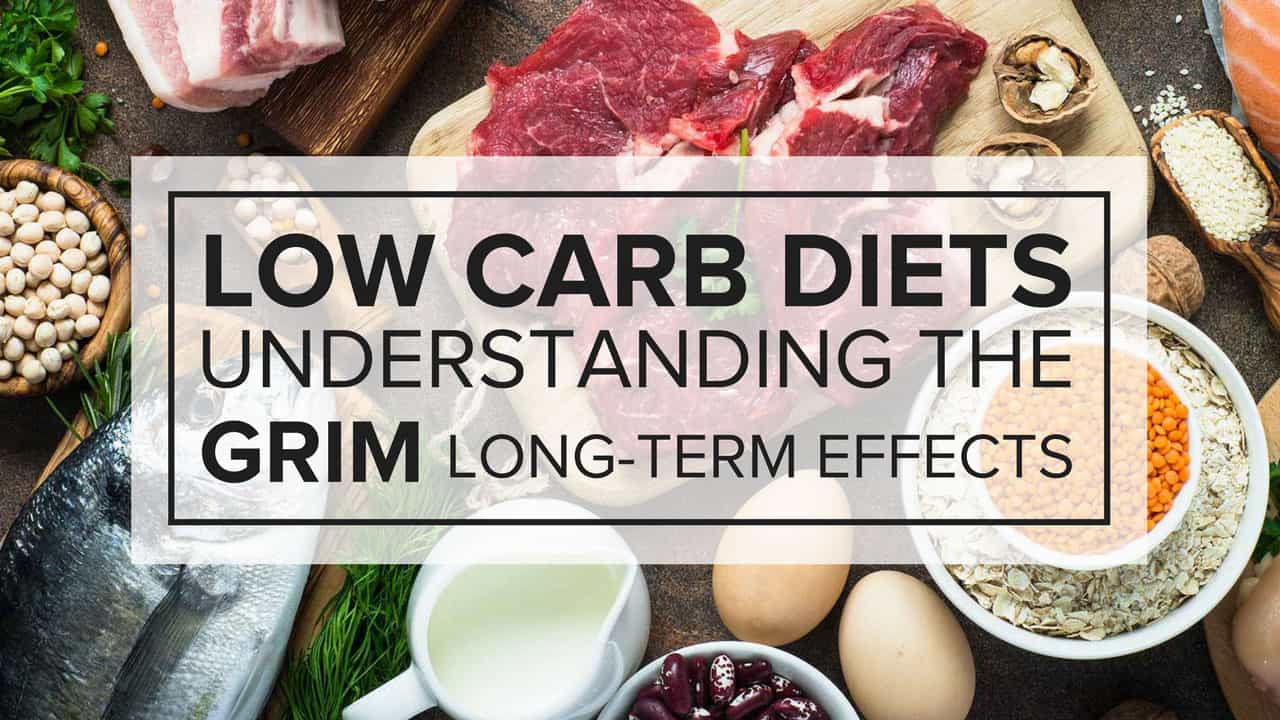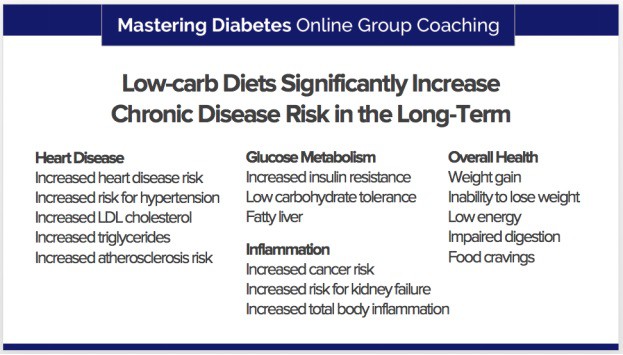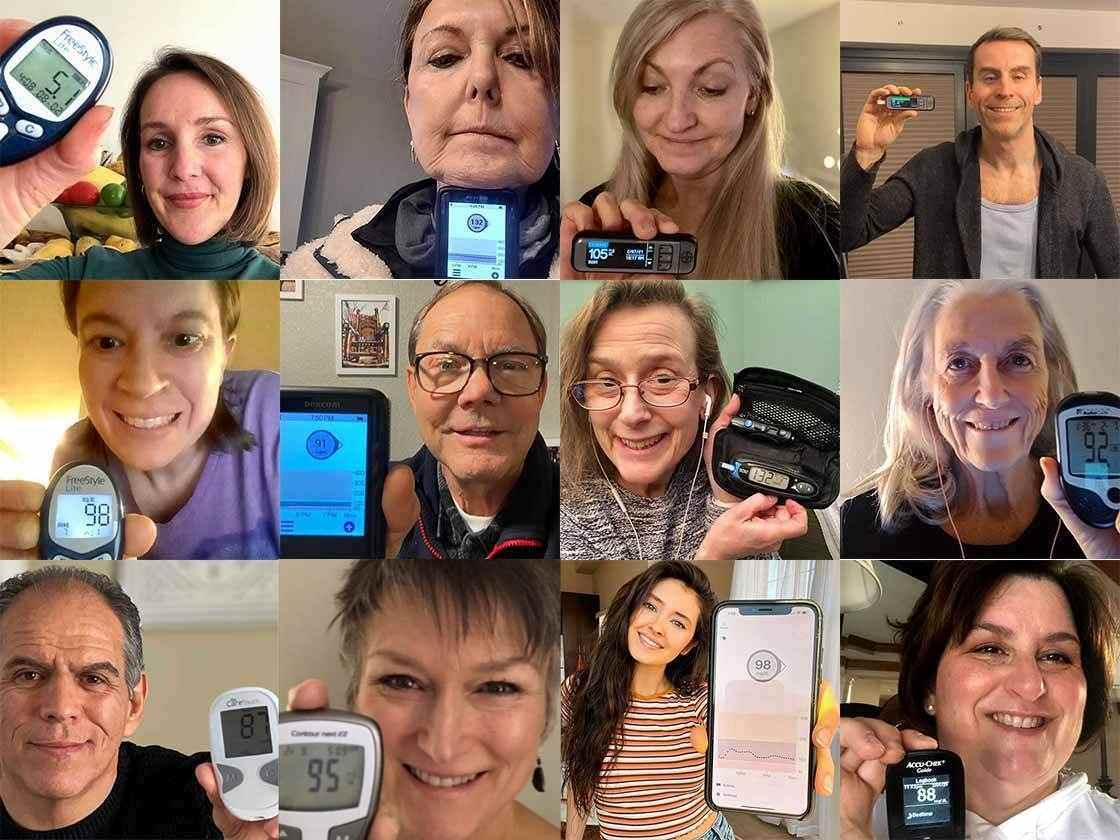
Diabetes is growing faster now than at any point in human history, yet despite this doctors continue to prescribe low carbohydrate diets, a strategy that is often viewed as the most effective nutrition approach for optimal diabetes health.
On the surface, this appears to make sense because low carbohydrate diets often result in rapid weight loss, reduced A1c values, and decreased blood glucose.
However, more than 85 years of research has clearly demonstrated that low carbohydrate diets cause insulin resistance, the behind-the-scenes condition that complicates and worsens all forms of diabetes (1–30).
Understanding the Biochemistry of Insulin Resistance
A growing body of evidence now shows that diets low in fat and high in unrefined carbohydrates from fruits, vegetables, beans, lentils, and whole grains are remarkably effective at reversing insulin resistance in patients with type 1 diabetes, prediabetes, and type 2 diabetes (20–25,31–42).
Insulin resistance results from the accumulation of fat in tissues that are not designed to store fat, mainly in your liver and muscles (2,3,9–14,16–18,27,43,44).
When you eat a low carbohydrate diet high in fat and protein, fatty acids are burned for energy, however they also accumulate in tissues like your muscle and liver.
When your muscle and liver begin accumulating fat, both tissues begin rejecting insulin in an effort to block more energy from entering. Essentially, the more fat you eat, the weaker insulin becomes.
The Laboratory and the Real World are Polar Opposites
Low carbohydrate diets are the easiest way to develop insulin resistance. In the research setting, scientists induce insulin resistance and diabetes by feeding laboratory animals a low carbohydrate diet high in fat and protein.
These animals gain weight, develop severe insulin resistance, and show early signs of diabetes in as little as 8 weeks (1,45,46,46–52).

Yes, you read that correctly.
The low carbohydrate diets that researchers use to create insulin resistance in the laboratory setting are very similar to the low carbohydrate diets that people with diabetes are told to eat in the real world.
How could this be the case?
Doctors are quick to prescribe low carbohydrate diets because they result in immediate weight loss, improved blood glucose control, reduced cholesterol, and reduced blood pressure.
However, in the long term, research shows that low-carbohydrate diets high in fat and protein including meat, dairy products, eggs, fish, and oil actually worsen diabetes health, increase cancer risk, increase cholesterol, increase atherosclerosis, harden blood vessels, and increase all-cause mortality (53–60).

Scientists Reversed Diabetes More than 85 Years Ago
The original research on low-fat, plant-based, whole-food diets to treat type 2 diabetes began more than 85 years ago.
Between 1930-1960, Dr. Rabinowitch was the first to demonstrate how to reverse type 2 diabetes by feeding patients a low-fat, plant-based, whole-food diet high in unprocessed carbohydrates.
Dr. Rabinowitch showed that eating fat-rich foods diminishes your ability to consume carbohydrate-rich foods. He successfully demonstrated that he could significantly improve insulin sensitivity using a low-fat, plant-based, whole-food diet, however critics argued that it only worked because his diet was also low in calories.
In the 1970s, Dr. Anderson followed these studies in which he fed patients with type 2 diabetes a low-fat, plant-based, whole-food diet containing sufficient calories to prevent weight loss.
In his groundbreaking study, he required that patients eat large amount of plant-based foods in order to prevent them from losing weight.
Without losing a single pound, patients were able to discontinue their insulin use after only 16 days by simply substituting low-fat plant foods for high-fat foods (20,35).
Some patients who had been on insulin for more than 10 years were able to discontinue insulin use altogether after only 16 days on a low-fat, plant-based, whole-food diet without losing a single pound.
More recent evidence from Dr. Neal Barnard at the Physicians Committee for Responsible Medicine (PCRM) demonstrates that low-fat, plant-based, whole-food diets are highly effective for weight control, improved blood glucose, reduced cardiovascular disease risk, and improved insulin sensitivity (31–34,37,41).
These studies clearly show that when fat intake is reduced to less than 15% of total calories, insulin becomes extremely effective, kicking carbohydrate metabolism into high gear.
Bringing the Research to Life
In our practice as nutrition and fitness coaches for people with type 1 diabetes, prediabetes, and type 2 diabetes, we find that the most successful way to reverse insulin resistance is to eat a diet containing less than 15% of total calories from fat, which means avoiding animal products like meat, poultry, fish, and dairy products, as well as even what have been deemed “healthy” fats like olive oil and coconut oil.
We help clients construct meals centered around whole carbohydrates from fruits, vegetables, plant starches (potatoes, squash, corn, brown rice, quinoa), beans, lentils, and peas, and amla (Indian gooseberries), and teach them to avoid processed carbohydrates from breads, crackers, cereals, and pastas.

Our clients lose weight without even trying, gain energy, and are able to minimize their oral and injectable medication needs in a matter of months.
I developed type 1 diabetes at the age of 22, and followed a low carbohydrate diet for the first year following my diagnosis. Plagued with low energy, bad breath, and hard-to-control blood glucose, I decided to try switching to a low-fat, plant-based, whole-food diet.
In less than 6 months, I reduced my insulin use by 40% while eating more than 900 grams of carbohydrate per day (more than many people with diabetes will eat in a month).
Your Low-Fat Diet Must Be Truly Low-Fat
All too often, doctors and people with diabetes attempt to eat carbohydrates without dropping their overall fat intake, which results in high blood glucose and weight gain.
This may make you believe that high-carbohydrate foods are causing the spike, but this is only the case if your overall dietary fat intake is also high.
As I mentioned earlier, the true culprit underlying high blood glucose is insulin-resistance, caused by muscle and liver cells clogged with fat.
If you are living with insulin resistance, you will likely see a spike in blood glucose after eating carbohydrate-rich foods because your muscles and liver are suffering from lipid overload. For best results, decrease your fat intake (to between 10-15% of calories) and increase your carbohydrate intake from whole, unprocessed foods and watch how your blood glucose responds.
The evidence is clear – both low carbohydrate diets and low-fat diets will result in weight loss and reduced insulin use. Those seeking short-term weight loss may benefit from a low carbohydrate diet.
However, the increased risk for more severe diabetes, as well as cancer cardiovascular disease, and all-cause mortality greatly outweigh the short-term improvements in blood glucose.
For those seeking stable long-term weight loss, reduced chronic disease risk, and greater longevity, a low-fat, plant-based, whole-food diet is the clear evidence-based choice.
References
Lower Your A1c and Get to Your Ideal Body Weight ... Guaranteed

Your results are guaranteed. Join more than 10,000 ecstatic members today
Personalized coaching puts you in immediate control of your diabetes health, helps you gain energy, improves your quality of life, and reduces or eliminates your meds.
What is Your Experience with a Low Carbohydrate Diet?
If you've ever tried a low carbohydrate diet, tell us about your experience in the comments below.

